Peking University, December 9, 2020: The Beijing Forum 2020 opened at Peking University on December 5.
The Vice-Chancellor of the University of Cambridge Professor Stephen J. Toope, raised a series of thought-provoking questions on the challenges faced by universities in pre-COVID times that continue to persist till today, and then examined the role of universities. Below is his full speech.
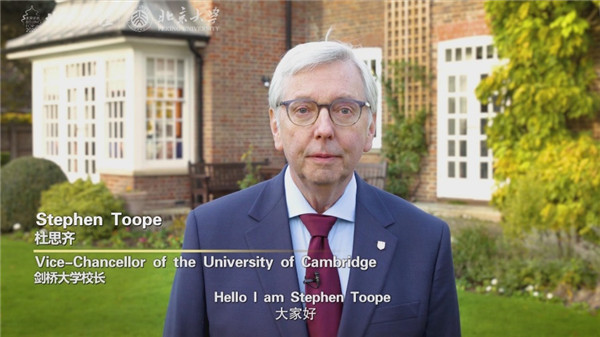
Hello. I am Stephen Toope, Vice-Chancellor of the University of Cambridge. I am grateful for the opportunity to address the Beijing Forum, even if it is remotely.
Public speakers are often advised to open a presentation with an attention-grabbing quote. So let me start by referring to British novelist L.P. Hartley, who began his novel, The Go-Between, saying: "The past is a foreign country; they do things differently there."This famous line is a reflection on the complexities of memory and history, as the protagonist looks back over events half a century earlier. Lately I feel that the same line might easily apply to the very recent past.
In May 2018, I was able to join many of you, in person, for a celebration of Beida's 120th anniversary. That moment now feels like a lifetime ago. In fact, it feels like we were living in another – now foreign – country.
We certainly did things differently then. We were able to meet, in person, in the Grand Ball Room of the one of the Villas of the State Guest House. We had not yet entered into the profound chill in international relations that has undermined collaboration on shared global challenges. And we were able to speak, face-to-face, about the future of global universities. But I am grateful for the technology that allows me to address you again today, despite the current limitations.
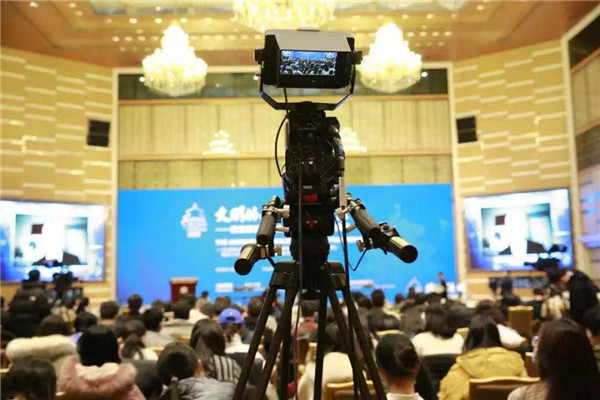
I spoke then about change and continuity in global higher education, not knowing that a couple of years later we would be facing some of the biggest changes the world has ever experienced. Changes to the way we work; changes to the way we socialize; changes to the way we communicate.
Nor could we have known then that, for the first time in living memory, the entire world – literally – would be facing the same immediate threats – to our health, to our livelihoods, to our economies. So much has changed – and so quickly – over the last few months.
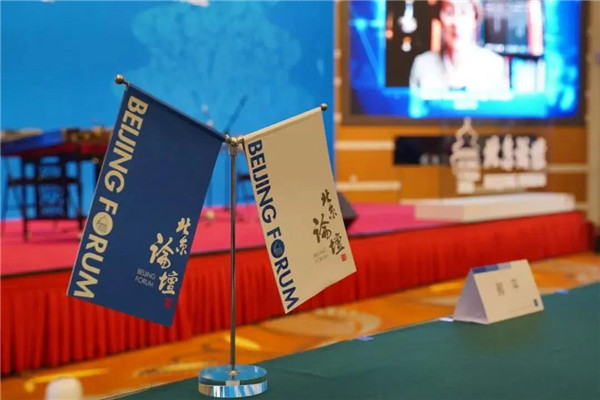
Yet some fundamental things remain the same.
In fact, the biggest challenges universities were confronted by, pre-COVID, are still with us. If anything, those challenges – those questions – are more urgent than ever:
#How do universities help to effectively combat infectious disease?
#How do universities help to roll back climate change?
#How do we help to ensure global food security?
#How do we help make our cities safer, smarter and more sustainable places to live in?
#How do we nurture a rich and diverse environment for the arts?
# How do we harness the power of new technologies for the benefit of our societies?
#How do we harness the power of our new ideas for the benefit of our societies?
To begin to answer these questions, we must be prepared to examine the role of universities. I believe that it is a fundamental purpose of universities to serve and challenge our societies – locally, nationally and globally.
The University of Cambridge's mission is "to contribute to society through the pursuit of education, learning and research at the highest international levels of excellence." Universities contribute to their societies in a number of ways: to begin with, we serve our local communities. For example, by creating local jobs, or contributing to local infrastructure.
Then we serve our societies at the national level, too. And whether it is in China or in the UK, a lot is expected of us: we provide education, of course. And the people we educate are likely to become leaders of government, of civil society, of academia and of industry.
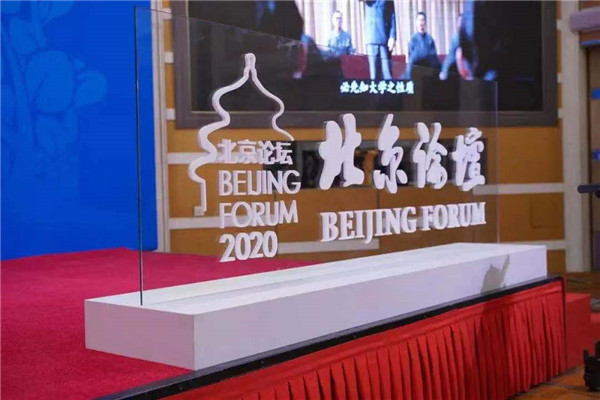
But universities are also expected to deliver the discoveries that will fuel our countries' development. We are expected to nurture the academic, professional, business and civic leadership that our countries need. We are expected to nurture the entrepreneurial and inquisitive mind-sets that will transform our countries in the decades ahead.
Contributing to society at the national level can also mean engaging with national conversations that have repercussions outside our own labs and lecture rooms. Those conversations can be difficult, but universities are sites where the hardest issues are confronted. If not, we cannot play our fundamental role in helping to point the way forward for our societies.
For instance:
How do we ensure that our universities are truly representative of, and open to, the wide range of talent that exists in our societies, across social, ethnic and economic divides?
What part do our universities play in designing ways to ensure that our citizens find their voice, contributing to their own governance?
How do universities ensure continuing space for open and honest conversations – not always comfortable – about the kinds of societies we aspire to live in?
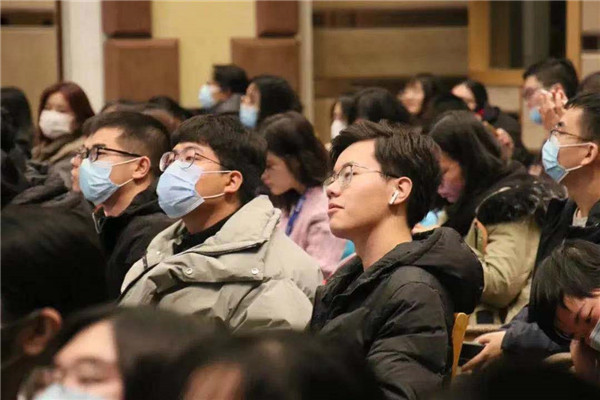
Our institutions' response to these and other issues set the standard for how our wider societies respond to them as well. We must lead by example. But we also serve and challenge society in a much more comprehensive – a global— sense.
The greatest issues we face are global. And as we have seen recently (and dramatically) no institution, no country, no matter how seemingly isolated, is immune to events occurring somewhere else on the planet.
Whether it is understanding the molecular basis of Alzheimer's, or helping governments create more equal and inclusive economic policies, or trying to develop accurate diagnostic tests or vaccines for COVID – what we do in Universities like Beida and Cambridge affects lives all-around the world. It is in this broadest sense that I understand serving and challenging our societies.
There is one other key role for Universities that I want to dwell on for a moment. We are now confronting an extraordinarily complex period in our global politics. The previously recognized frameworks for international relations are no longer accepted. Tensions are rising.
In place of the world of bipolar alignments that most of us grew up with, we see the emergence of a world in which overlapping sets of interests require the building of coalitions on an issue-by-issue basis.
In a world like that, collaboration between states and governments is more difficult to achieve, and harder to sustain. Political trade-offs become messier and less stable. In a world like that, what we often refer to as "Track II diplomacy" – the informal and unofficial contacts between citizens, organizations and other non-state actors – becomes more important than ever.
This is something that universities are exceptionally well-placed to do.
In the years ahead, we are likely to see a global escalation of tension in issues ranging from trade to security. And when geopolitics puts international cooperation under strain, it is crucial that academic institutions find ways to continue to work together where values and aspirations can be aligned – because the global challenges are still there, and they will continue to affect us all.
In tackling some of the big issues – from COVID to the climate crisis – we need the diversity of backgrounds, of views and of expertise that can only come from equitable, open partnerships.
This, after all, is how knowledge is produced these days. The lone researcher – even the lone institution — is no longer a viable model for the delivery of world-leading contributions.
Consider this:
In 1905, Albert Einstein published four papers that revolutionised scientists' understanding of space, time, mass and energy. He was the sole author.
In 2015, the famous paper that confirmed the size and properties of the Higgs boson, listed over 5,000 contributing authors from institutions all-around the world.
Today, Nobel prizes in scientific research are no longer awarded to individuals but – rightly – to teams.
And if Cambridge has been able to contribute to global society, it is because it has been able to collaborate freely with its partners around the world. One particularly fruitful collaboration is taking place in Nanjing. At the Cambridge-Nanjing Centre of Technology and Innovation, in which we work in partnership with PKU, among others, we are establishing a hub for collaborative innovation. The academic collaborations nurtured through the Centre will enable the development of "smart" cities in which technology enables sustainable lifestyles, improves health care, limits pollution and makes more efficient use of energy.
The past eight months have shown why Universities like Cambridge and Beida are more necessary than ever.
Since March, Cambridge has undertaken over 200 different research projects on coronavirus transmission, on diagnostic tests, on vaccine development, on social behavior, on our health services' capacity, on public health responses to the pandemic, on the global educational impacts of COVID, and on the post-COVID recovery.
An entire university department has pivoted its research focus to better address the immediate and the long-term impact of COVID. This important work has underlined a stark truth – not just for Cambridge, but for all research-intensive organisations tackling a global challenge.
We cannot do it alone. "No man is an island", wrote John Donne, one of Cambridge's most famous poets. What is true about people is also true about global universities.
There is nothing like a global pandemic to reveal just how intricately and profoundly connected we are, even in this politically fraught world. COVID is an inescapable reality, whether we are in Cambridge or in Beijing. No matter how good it is, no matter how well established, an individual research and teaching organization cannot respond on its own.
In a world of diminishing resources, and with challenges of all sorts increasing in complexity and scale, collaboration is imperative. It may become harder with rising political tensions, but we must find ways forward that recognize sometimes significant differences but that seek out ways to partner on great global problems.
Finding solutions to the world's shared challenges will depend on our institutions' ability to harness the power of our partnerships. These partnerships help us reiterate our mission: to serve and challenge our societies.
If there has been a helpful outcome amid the tragedy and the sadness of the pandemic, it is that we have learned that we can be closer than we once thought – even at a distance. We have discovered, and are making the most of, creative ways of bringing together the intellectual and the human resources of our institutions.
The theme of this year's Beijing Forum is "The Harmony of Civilizations and Prosperity for all". One definition of harmony tells us that it is "the state of being in agreement or concord".
One older definition of harmony refers to "agreement among the various parts of the body." And of course there is a musical definition of harmony: "The combination of simultaneously sounded musical notes to produce a pleasing effect."
Whether in the body, in music, or indeed among countries – harmony is never easy to achieve. But it should always be our aspiration, even as we recognize the differences among us.
Sometimes, in the most challenging music, the notes jar, but a form of harmony, even in dissonance, can be produced. In a world of growing disharmony, universities must keep alive dialogue, learning and sharing amongst individuals and amongst peoples.
In a world of narrowing horizons and rising disinformation, universities must continue to be a safe environment for the open exchange of ideas and knowledge.
This is what universities around the world have done for centuries even in periods of equal and greater political disharmony.
I hope we can find a way to do this for centuries to come.
Thank you all for listening. Good luck with the remainder of the Forum.